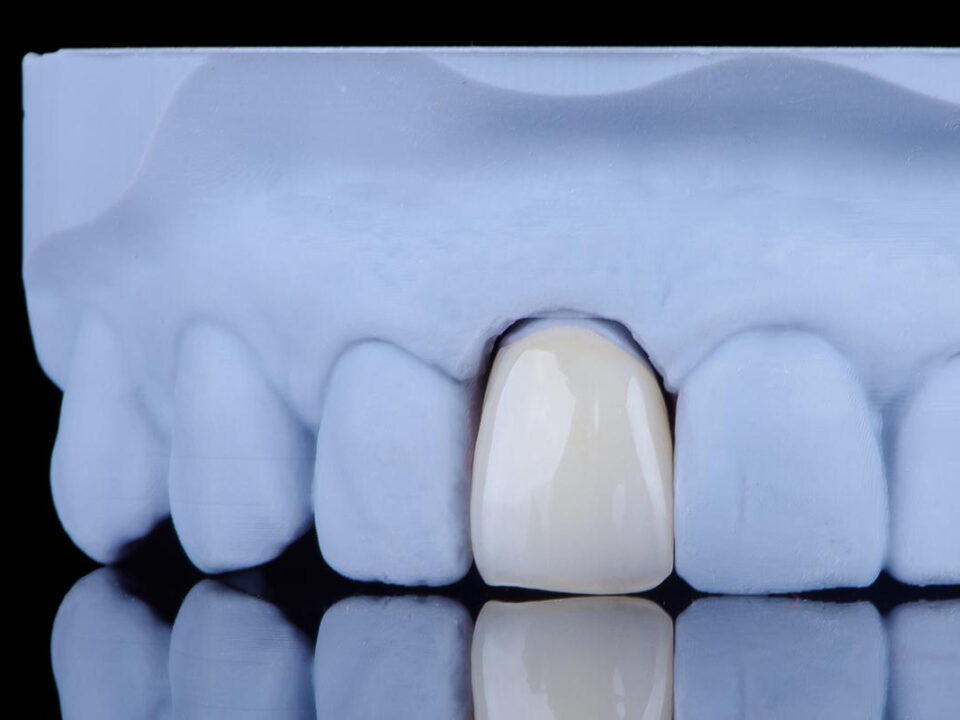Can Periodontists Do General Dentistry?

How to Clean Dental Braces?
November 7, 2024
Can Dental Bridges Be Removable?
November 21, 2024Many people wonder if a periodontist can handle general dental treatments. What periodontists do is that they specialize in gum and bone health but can perform other dental procedures as well. Knowing the difference between a periodontist vs. general dentist helps patients better understand their care. Here, we explain what periodontists do, how they differ from general dentists, and when you might need one.
Why You Need to See a Periodontist?
Periodontists focus on your gum and bone health to help you prevent and treat gum disease. So, if you have signs of gum disease, persistent bad breath, or even loose teeth, you need to see a periodontist to provide you with targeted treatments to restore health and prevent further damage. When you see a periodontist, you receive specialized care for healthier gums and a stronger smile.
How Is a Periodontist Different from a Dentist?
When comparing a periodontist vs. dentist, their distinct roles are specified in dental care. General dentists in Washington handle exams, cleanings, and fillings to maintain tooth health. What periodontists do? They focus on gums and the structures supporting teeth, treating advanced gum issues like severe gum disease or bone loss. They also perform surgeries, such as gum grafts, which general dentists may not be trained to do.
Do Periodontists Also Perform General Dentistry?
Though they specialize in gum care, offering some general dental services is among what periodontists do. However, this depends on the practice and the specific treatments they choose to provide. Learning about the main focus of their specialty can help you decide if they are the right fit for your needs or if general dentistry will be enough.
Can Periodontists Prescribe Medication?
Yes, they can prescribe medication, like antibiotics, to control infection and support healing after procedures. As a key part of what periodontists do is diagnosing and treating advanced gum disease, they may also recommend special mouth rinses. By prescribing the right medications, they ensure patients get complete care tailored to their specific gum health needs.
Can Periodontists Do Fillings?
Yes, they can do dental fillings in cases where gum health is directly affected to ensure complete care. However, most fillings are usually handled by general dentists, as that is their area of expertise. In certain cases, what periodontists do may involve placing fillings near the gum line to prevent further decay.
Do Periodontists Do Dentures?
Yes, they do dentures for patients with advanced bone or gum issues. They can especially work with dentures by preparing the gums and bone and making sure the dentures fit correctly and stay in place. Their knowledge of bone and gum health makes them well-suited for these procedures.
Do Periodontists Do Cleanings?
Yes, they do cleanings by using deep techniques to reach below the gum line and remove harmful bacteria. This procedure is also known as scaling and root planing. This type of cleaning reaches below the gum line, removing bacteria and plaque that regular cleaning cannot address. It is essential for patients with or exposed to gum disease or those at high risk.
Do Periodontists Do Implants?
Yes, they do implants by placing them securely. Plus, they check that gums and bones are healthy and strong. Since implants need a strong foundation, they ensure that the implant will stay secure. They manage complex cases and can perform treatments that a general dentist may not offer.
Can a Periodontist Do Oral Surgery?
Yes, another aspect of what periodontists do includes performing surgeries like gum grafts and bone repairs. These surgeries include bone grafts, gum grafts, and procedures for severe periodontal disease. They are trained experts to manage both bone and gum conditions, which makes them ideal for surgeries that address both.
When Should You See a Periodontist?
If you have symptoms like swollen or bleeding gums, gum recession, or persistent bad breath. You should also visit if you plan to get implants, have advanced gum disease, or need other specialized treatments. A periodontist can offer solutions tailored to complex issues, ensuring you receive proper care.
General Dentistry Near Me in Washington
Finding a qualified periodontist in your area can give you access to specialized care. Many general dentists provide referrals, or you can search online to locate them nearby. When choosing one, look for someone with a solid reputation and experience in treating gum and bone conditions. Visit us to learn more and schedule your appointment.
Conclusion
Many people wonder what periodontists do differently from general dentists in managing oral health. It is a question of general dentists vs. periodontists. Bringing unique expertise to dental care and focusing on gums and structures is a periodontist specialty. Some also offer general dental services to support overall oral health and provide the specialized care you need.
FAQs
Signs like swollen gums, bleeding, and receding gum lines. These symptoms often point to gum disease, which requires specialized care.
Yes, a general dentist can diagnose periodontal disease. However, they may refer you to a periodontist for advanced care if the condition worsens or becomes complex.




